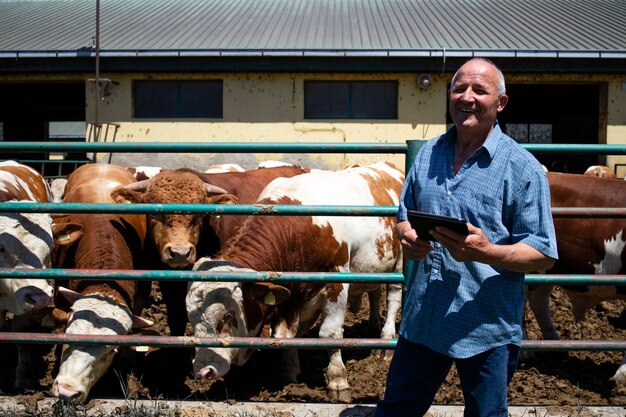Effective livestock management is essential for South African farmers to maximize productivity, ensure animal welfare, and maintain sustainable farming operations. By adopting best practices tailored to South Africa’s diverse climate and agricultural landscape, farmers can enhance the health and profitability of their livestock. Here are key strategies for effective livestock management.
1. Ensure Proper Nutrition
Good nutrition is the foundation of healthy livestock.
- Provide a balanced diet tailored to the species and purpose (e.g., meat, milk, or egg production).
- Use quality feeds, and consider supplementing with minerals and vitamins to address specific deficiencies.
- For grazing animals, rotate pastures to maintain grass quality and prevent overgrazing.
2. Maintain Clean Water Supply
Access to clean, fresh water is essential for livestock health.
- Ensure water sources are free from contamination.
- Regularly clean water troughs and tanks.
- In arid areas, consider rainwater harvesting or boreholes to secure water availability.
3. Implement Proper Housing and Shelter
Provide adequate shelter to protect animals from extreme weather conditions.
- Design housing with good ventilation to reduce heat stress and respiratory issues.
- Use materials that insulate against cold and heat.
- Maintain cleanliness to prevent diseases and infestations.
4. Focus on Disease Prevention
Preventive measures are more cost-effective than treatments.
- Develop a vaccination schedule for common diseases in your area.
- Deworm animals regularly and check for parasites.
- Quarantine new or sick animals to prevent the spread of diseases.
- Partner with a local veterinarian for regular health check-ups.
5. Practice Good Breeding Management
Effective breeding programs improve herd quality and productivity.
- Select healthy, high-performing animals for breeding.
- Avoid inbreeding, as it can lead to genetic issues.
- Monitor breeding cycles and use artificial insemination if necessary for better genetic diversity.
6. Monitor Animal Health
Regularly observe your livestock for signs of illness or injury.
- Look for changes in behavior, appetite, or physical appearance.
- Keep accurate health records for each animal.
- Act promptly if issues are detected to prevent larger outbreaks.
7. Optimize Grazing Practices
Sustainable grazing is key to long-term livestock productivity.
- Rotate pastures to allow grass to recover.
- Introduce legumes like lucerne to improve pasture quality.
- Avoid overstocking, which can lead to soil degradation and reduced feed availability.
8. Reduce Stress in Livestock
Stress negatively affects animal health and productivity.
- Handle animals calmly and avoid overcrowding.
- Provide shade and cooling during hot months.
- Minimize transportation and adapt it to reduce discomfort.
9. Embrace Technology and Data Management
Modern tools can enhance livestock management.
- Use ear tags, RFID, or GPS trackers to monitor individual animals.
- Implement farm management software to track health, breeding, and feeding records.
- Analyze data to make informed decisions about herd management.
10. Ensure Compliance with Animal Welfare Standards
Ethical livestock farming is not only a moral obligation but also a market requirement.
- Familiarize yourself with South Africa’s animal welfare laws.
- Avoid practices that cause unnecessary pain or discomfort.
- Ensure animals are slaughtered humanely in certified facilities.
Why These Practices Matter
- Improved Productivity: Healthy, well-managed animals produce more milk, meat, and eggs.
- Sustainability: Responsible management preserves resources for future generations.
- Market Access: Meeting welfare and quality standards opens doors to local and international markets.
Livestock management in South Africa requires a combination of traditional knowledge, modern techniques, and a commitment to animal welfare. By implementing these best practices, farmers can ensure the health of their animals, boost productivity, and achieve long-term success in the agricultural sector.
Join 'Farmers Mag' WhatsApp Channel
Get the latest Farming news and tips delivered straight to your WhatsApp
CLICK HERE TO JOIN






